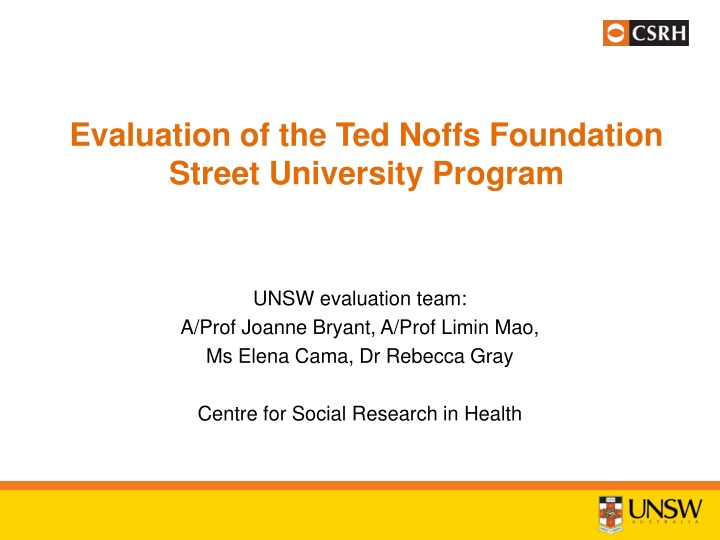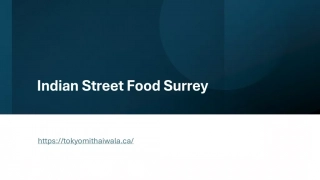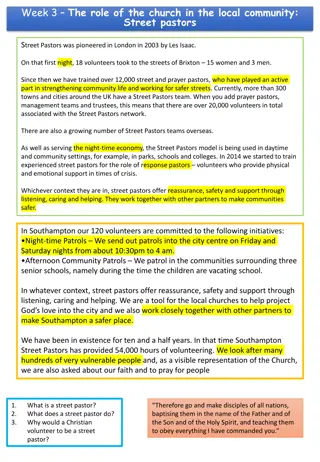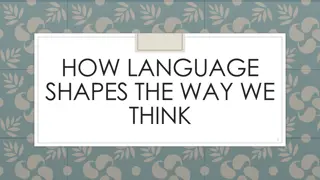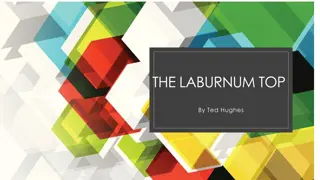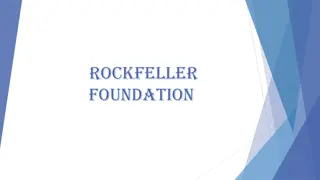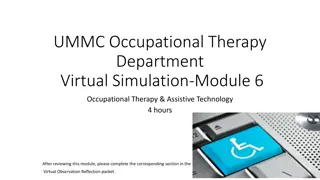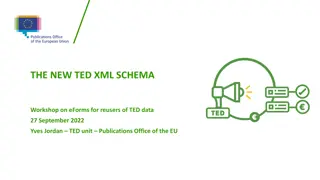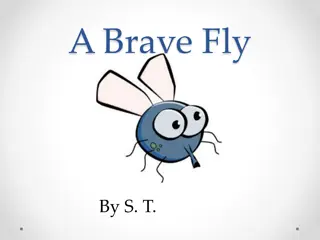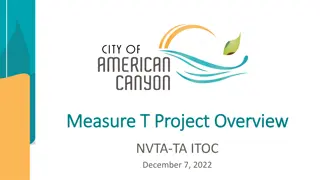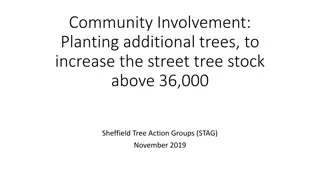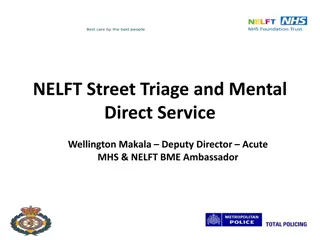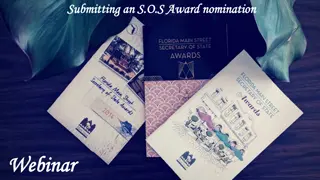Evaluation of Ted Noffs Foundation Street University Program by UNSW Team
The Ted Noffs Foundation Street University Program evaluation by the UNSW team focused on the program's effectiveness in engaging and maintaining young participants, impact on substance use and mental health, and client and staff perspectives. The evaluation used a prospective cohort study, baseline data, and in-depth interviews with clients and staff. Key findings highlighted the program's ability to attract and retain at-risk youth, with insights into client demographics and behaviors. The report sheds light on the program's positive influence and challenges faced by participants.
Download Presentation

Please find below an Image/Link to download the presentation.
The content on the website is provided AS IS for your information and personal use only. It may not be sold, licensed, or shared on other websites without obtaining consent from the author.If you encounter any issues during the download, it is possible that the publisher has removed the file from their server.
You are allowed to download the files provided on this website for personal or commercial use, subject to the condition that they are used lawfully. All files are the property of their respective owners.
The content on the website is provided AS IS for your information and personal use only. It may not be sold, licensed, or shared on other websites without obtaining consent from the author.
E N D
Presentation Transcript
Evaluation of the Ted Noffs Foundation Street University Program UNSW evaluation team: A/Prof Joanne Bryant, A/Prof Limin Mao, Ms Elena Cama, Dr Rebecca Gray Centre for Social Research in Health
The evaluation sought to: determine the effectiveness of the engagement program in engaging pre-service young people, and in maintaining engagement with them over the longer term ascertain the impact of the program on clients substance use, mental health, and criminal involvement, along with other outcomes. qualitatively describe staff and clients perspectives about program goals and mechanisms
Evaluation design and data sources Prospective observational cohort: baseline, 3 months, 6 months All new entrants: changes in outcomes for attenders and non-attenders Primary outcome measures: SDS, substance use in past 4 weeks, K10 Psychological distress, police contact Baseline n=316 . recaptured n=95 (RR 30%) Analysed for: changes in outcomes within attended and did not attend groups; changes in outcomes using a dose-response type analysis correlating number of hours spent at the service with outcomes Qualitative in-depth interviews with clients and staff Loosely based on Realist Evaluation method (Pawson and Tilley, 1997) focusing on perceived program outcomes, mechanisms and contexts n=22 clients, n=5 staff Street Uni therapeutic counselling data 2014-19 data on therapeutic intervention episodes (not all clients) Clients who completed three or more counselling appointments n=161
Finding 1: Street Uni has an impressive capacity to attract and retain pre-service youth over the long term It s a good place for young kids who don t have a chance at home. Yeah. [ ] There s people here that care. Kids need help with homework. Kids need help with assignments. There s people here. Whereas, if they re at home and they have parents that don t care, you know? [ ] Also, people round here don t have the best things. And the fact that we can come here and use the things we want for free is it s a big deal. Of participants enrolled at baseline 63% of participants returned at least once 54% returned weekly or more often average of two hours each time, half stayed for longer than two hours. Of those who did not return, reasons provided related to work, study and family obligations.
Who are Street Uni clients? N (%) Attended (n=60) 26 (43) Did not attend (n=35) 17 (49) p-value Male NS Age M (SD), Range 17.18 (2.58), 14-24 17.26 (2.68), 14- 24 17 (49) Currently at school 26 (43) NS Currently employed 8 (13) 10 (29) 0.07 K6 Psychological distress 15.6 15.1 NS Probable serious mental illness % 21 (35) 8 (23) NS Crime cumulative outcome (last 3 months) 0.8 1.1 NS Interviewed by police 10 (17) 9 (26) NS Given formal warning or police caution 12 (20) 7 (20) NS Reports any drug to be of concern 28 (47) 10 (28) NS Drank in last 4 weeks 37 (62) 23 (66) NS Used Cannabis in last 4 weeks 24 (40) 14 (40) NS
Who are Street Uni clients? N (%) Attended (n=60) 26 (43) Did not attend (n=35) 17 (49) p-value Male NS Age M (SD), Range 17.18 (2.58), 14-24 17.26 (2.68), 14- 24 17 (49) Currently at school 26 (43) NS Currently employed 8 (13) 10 (29) 0.07 K6 Psychological distress 15.6 15.1 NS Probable serious mental health problems % 21 (35) 8 (23) NS Crime cumulative outcome (last 3 months) 0.8 1.1 NS Interviewed by police 10 (17) 9 (26) NS Given formal warning or police caution 12 (20) 7 (20) NS Reports any drug to be of concern 28 (47) 10 (28) NS Drank in last 4 weeks 37 (62) 23 (66) NS Used Cannabis in last 4 weeks 24 (40) 14 (40) NS
Types of activities undertaken, attenders General activities Hang out with friends Hang out with staff Use computers Taken food package home Counselling Talk to counsellors about my use of alcohol or drugs N (%) 48 (89) 24 (40) 29 (48) 10 (17) 5 (8) Talk to counsellors about my mental health Workshops and classes Music workshops/classes Dance workshops/classes Art workshops/classes Cooking/food preparation classes Help from staff Talked to staff about other services (e.g. doctors, employment) Talk to staff about school, TAFE, uni or jobs Talk to staff about other issues or problems in my life 8 (13) 15 (25) 15 (25) 6 (10) 8 (13) 9 (15) 6 (10) 10 (17)
Types of activities undertaken, attenders General activities Hang out with friends Hang out with staff Use computers Taken food package home Counselling Talk to counsellors about my use of alcohol or drugs N (%) 48 (89) 24 (40) 29 (48) 10 (17) 5 (8) Talk to counsellors about my mental health Workshops and classes Music workshops/classes Dance workshops/classes Art workshops/classes Cooking/food preparation classes Help from staff Talked to staff about other services (e.g. doctors, employment) Talk to staff about school, TAFE, uni or jobs Talk to staff about other issues or problems in my life 8 (13) 15 (25) 15 (25) 6 (10) 8 (13) 9 (15) 6 (10) 10 (17)
Types of activities undertaken, attenders General activities Hang out with friends Hang out with staff Use computers Taken food package home Counselling Talk to counsellors about my use of alcohol or drugs N (%) 48 (89) 24 (40) 29 (48) 10 (17) 5 (8) Talk to counsellors about my mental health Workshops and classes Music workshops/classes Dance workshops/classes Art workshops/classes Cooking/food preparation classes Help from staff Talked to staff about other services (e.g. doctors, employment) Talk to staff about school, TAFE, uni or jobs Talk to staff about other issues or problems in my life 8 (13) 15 (25) 15 (25) 6 (10) 8 (13) 9 (15) 6 (10) 10 (17)
Types of activities undertaken, attenders General activities Hang out with friends Hang out with staff Use computers Taken food package home Counselling Talk to counsellors about my use of alcohol or drugs N (%) 48 (89) 24 (40) 29 (48) 10 (17) 5 (8) Talk to counsellors about my mental health Workshops and classes Music workshops/classes Dance workshops/classes Art workshops/classes Cooking/food preparation classes Help from staff Talked to staff about other services (e.g. doctors, employment) Talk to staff about school, TAFE, uni or jobs Talk to staff about other issues or problems in my life 8 (13) 15 (25) 15 (25) 6 (10) 8 (13) 9 (15) 6 (10) 10 (17)
Finding 2: Among new entrants, no measurable decreases in psychological distress, criminal contact or problematic substance use over 6 months Attended (n=60) Mean (SD), range Did not attend (n=35) Mean (SD), range Psychological distress Baseline Six month FU p value 15.60 (6.07), 6-30 14.73 (6.21), 6-30 NS 15.06 (5.69), 6-25 15.74 (5.67), 6-27 NS Recent crime (cumulative) Baseline Six month FU p value 0.83 (1.79), 0-8 0.62 (1.26), 0-6 NS 1.06 (1.51), 0-5 0.37 (0.77), 0-4 NS Any drug of concern (vs no drug of concern) Baseline Six month FU p value 28 (47) 23 (38) NS 10 (29) 10 (29) NS
Finding 3: Program data reveal those who take part in therapeutic counselling achieve significant improvements Severity of dependence score Friedman X2=37.8, 3df, p<0.001 Mean number of arrests Freidman X2=29.4, 3df, p<0.001 K10 Psychological distress Friedman X2=65.6, 3df, p<0.001 4.1900 0.26 3.4969 1.9255 1.7143 3.0745 1.6025 1.5652 2.6211 0.11 0.09 0.07 Assessment FU1 FU2 FU3 Assessment FU1 FU2 FU3 Assessment FU1 FU2 FU3
Finding 4: Primary program outcomes are seen to be about building technical, life and social skills program outcomes were seen by participants to be related to skill- building (technical, life and social skills) and less often about therapeutic outcomes such as mental health and substance use. therapeutic intervention was seen to happen organically through participation in the engagement activities (music, art, dance), and not through directly linking clients to counselling services I started making music and my cousin told me you can record here for free. I came for music, yeah [ ] I ve done some counselling here but other than that, no, not really anything else. But I only get an hour per week. [ ] Music calms me down a lot. Helps me. It helps me express things that I can t talk to people about. I find it hard speaking to people about my feelings, things like that. (Jason)
Finding 5: Street Uni is highly valued by clients and is seen to work through 4 key mechanisms A lot of it is probably like when we all hang out on the streets it s like we get pulled up by cops or snubbed by random people, looked down on by everyone. But when we are at Street Uni you know, it s a safe place for us to be who we wanna be without getting judged or pulled up. (Sasha) 1. it provides a safe and inclusive space for young people who often do not experience safety in their homes or in public spaces; 2. it provides the opportunity for young people to develop positive relationships with adult; I was expecting as soon as you open a door there ll be a desk, a reception saying, What are you doing here? you know? No. Went and opened the door to the basketball court. I m like, What the ? (Caleb) 3. it offers activities that are appealing and relevant to young people, and promotes an environment in which youth culture and agency are celebrated; 4. it seeks to employ these mechanisms over the long term to ensure that young people are sufficiently supported in their social, emotional, material and therapeutic needs. through here like they help me get credited for work, doing, doing work here, volunteer work and such, and so that could go, that went on my, my, my resume for uni. I just told them, Hey, I yeah. So I just told them like, Hey, I ve done this stuff with these guys before, and they re like, Oh, pretty good. So it really helped me get into uni. (Jude)
Our recommendations Continue engagement activities as these are impressive in their capacity to attract and retain pre-service young people over the long term. Develop clearer processes to identify clients in need of counselling and other mental health and AOD therapies. Increase the skills of staff who work in engagement roles to improve their capacity to identify young people in need of counselling and other mental health and AOD therapies Further develop the help-seeking skills of young people, especially since help-seeking is identified by young people as a valuable skill that they gained through their participation at Street University.
